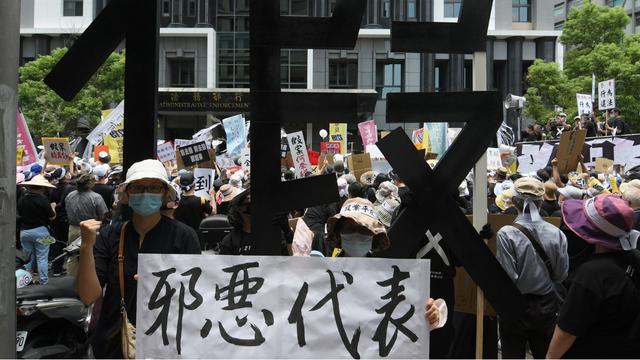An appeal that gathered significant support asks the authorities in Taiwan to find a political solution for the 22-year-long case.
by Karolina Maria Hess*
*Introduction to the webinar “Tolerance for Tai Ji Men,” co- organized by CESNUR and Human Rights Without Frontiers on November 16, 2022, United Nations International Day of Tolerance.

Today the United Nations celebrate the International Day of Tolerance, and we celebrate the success of an appeal for tolerance that I signed, together with other scholars, on June 13, 2022. The same appeal has now been signed by many distinguished Taiwanese scholars, and is having a significant impact in Taiwan.
It is not the first appeal on the Tai Ji Men case, but we hope it will be the last—not because we will give up (we will not) but because hopefully the case will finally be solved.
For those who do not know the case, as the appeal summarizes, Tai Ji Men was among the victims of a 1996 crackdown on those religious movements that were accused of not having supported the ruling party in Taiwan’s presidential elections. It was the last act of Taiwan’s post-authoritarian repression of independent spiritual groups. Tai Ji Men academies were raided and its Shifu (Grand Master) was arrested, together with the Shimu (his wife) and two dizi (disciples).
As the appeal continued to summarize, the Supreme Court eventually declared the Tai Ji Men defendants innocent of all charges, including tax evasion, and compensations was given to those unjustly arrested. However, the National Taxation Bureau continued to issue ill-founded tax bills that contradicted the Supreme Court’s verdict.
In 2020, based on one of these bills, sacred land of Tai Ji Men intended for a self-cultivation center was auctioned off and confiscated. Taiwan’s authorities claim that the confiscation is based on a final verdict, which cannot be revised. It is, however, a general principle of law, fairness, and human rights that patently unjust verdicts can always be re-examined, particularly when new facts and evidence have emerged, as it has happened in the Tai Ji Men case.
The appeal is not a technical or legal document. It calls for a political solution. We wrote that, “It is now time for leaving aside technicalities and finding a political solution, while protests by Tai Ji Men dizi continue in Taiwan and the United States, with thousands taking to the streets.”
We hope that, as scholars all over the world were moved by the Tai Ji Men case and the dizi’s 26-year-long fight for justice and mobilized to support them, a political solution will now be found.

We wrote that, “We join Tai Ji Men in respectfully asking the government of Taiwan, whose commitment to democracy in a region plagued by non-democratic regimes we appreciate and applaud, to return through a political act the confiscated sacred land to Tai Ji Men and publicly confirm that, as Taiwan’s Supreme Court stated, they never violated the law nor evaded taxes. It would be a small step for Taiwan’s government, but a crucial one to tell the world Taiwan is truly committed to freedom of religion or belief and to the protection of religious and spiritual minorities that were once persecuted by its authoritarian and post-authoritarian regimes.”
The International Day of Tolerance has been established to meditate on the terrible consequences of intolerance, but also to remember that intolerance can happen everywhere, including in democratic countries. The difference with totalitarian regimes is that democratic countries allow citizens to protest and may rectify their mistakes. Our webinar today asks the Taiwanese authorities to rectify what has been an obvious, if long, mistake.
Source: Bitter Winter

